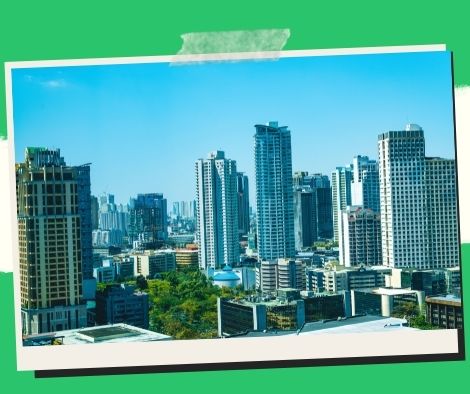
With a new retail entrance law, the Philippines relaxes some of Asia’s strictest FDI rules.
The Philippines is preparing to ease some of Asia’s most stringent foreign investment restrictions, starting with lowering entry procedures for foreign shops.
President Rodrigo Duterte has signed a bill making it simpler for foreign businesses to open stores in the Philippines. The regulation, which will take effect 15 days after it is published on Jan. 6, has been praised as a competitiveness booster by proponents, while local players regard it as a business killer.
The Retail Trade Liberalization Act of 2000 is amended by Republic Act No. 11595, which reduces the minimum paid-up capital requirement for foreign enterprises from $2.5 million to 25 million pesos ($490,000). Other admission requirements, such as a minimum net worth, number of branches, and track record, were also eliminated.
The law is one of three important pieces of legislation advocated by Duterte’s economic team to free up the Philippine economy. The old retail trade law “disproportionately rewarded already-large firms, hindered varied smaller investors such as startups from entering the Philippine retail market, and complicated compliance for overseas merchants,” according to Finance Secretary Carlos Dominguez.
The local retail industry has spoken out against the relaxation, but Duterte, who is poised to leave office in June, sees it as critical legislation to assist the economy recover from the coronavirus crisis.
Despite the appearance of being a foreign retail haven, with the recent opening of Ikea’s largest branch in the world and being home to Uniqlo’s largest outlet in Southeast Asia, the country’s retail sector is dominated by local players such as family-owned conglomerates SM Investments and Gokongwei Group’s Robinsons Retail Holdings.
According to Department of Trade and Industry data, only roughly 20 international shops have been prequalified to do business under the 2000 standards, including Swedish clothing retailer H&M, French sporting goods retailer Decathlon, and Japanese convenience store chain FamilyMart.
In the Organization for Economic Cooperation and Development’s foreign direct investment regulatory restrictiveness ranking, the Philippines ranks first in Asia, and its retail sector exemplifies this reputation.
According to the Philippines’ central bank, the retail sector received $83.5 million in FDI in 2020, accounting for 6% of total equity injections that year.
The lower capital requirement of the new rule allows firms of all sizes to explore the Philippine market with minimum risk.
“The modifications are a major improvement,” said John Forbes, senior consultant to the American Chamber of Commerce of the Philippines. “They will in time attract many new foreign shops.”
The bill, according to Chris Nelson, executive director of the British Chamber of Commerce Philippines, will help Manila compete for foreign direct investment in Southeast Asia.
“The point to emphasize here is that while there are some worries, this act actually enhances the retail industry in terms of competitiveness and bringing in new investments,” Nelson said, adding that he hopes to sell the new law to British businesses next month.
However, the Philippine Retailers Association, a trade association in the Philippines, remains suspicious. “I doubt the government will attract major foreign investment with a minimum commitment of $500,000,” stated PRA Vice Chairman Roberto Claudio.
He said that multinational retail behemoths such as Walmart and Tesco had previously investigated the Philippines. “All of these international stores would have come in at any time if they wanted to,” Claudio remarked.
Claudio argues that concerns like corruption, red tape, peace and order, and simply the existing competitive retail sector discouraged these enterprises, rather than the capital required. Claudio explained, “Doing business in the Philippines wasn’t that appealing.”
He went on to say that the low capital requirement for foreigners “would just kill, if not devastate our MSME economy,” alluding to the 98 percent of the country’s businesses that are micro, small, and medium-sized.
Claudio believes that local small businesses may not be prepared for overseas competition. Claudio expressed concern that “retailers from Nathan Road [in Hong Kong] will come here and sell shoes or cameras.” “The majority of Filipino entrepreneurs begin their careers in retail. They will be at a disadvantage if they are exposed to overseas competition.”
Two additional elements of economic liberalization have also made progress. Both houses of Congress have passed a modification to the 30-year-old Foreign Investment Act, while an amendment to the 85-year-old Public Service Act, which eliminates the 40 percent foreign ownership limit in industries like telecom and aviation, is awaiting Duterte’s signature. Before forwarding it to the president for approval, lawmakers must reconcile their versions.
However, Victor Abola, an economist at the University of Asia and the Pacific, believes it will be some time before these regulations have a substantial impact on the economy, which is still recovering from its worst recession since World War II in 2020.
“All of these factors are favorable to FDI. However, I do not believe that a large inflow would occur right away because foreign investors will wait until the new administration takes office “According to Abola. In May, the country will have general elections.
Save/Share this story with QR CODE
Disclaimer
This article is for informational purposes only and does not constitute endorsement of any specific technologies or methodologies and financial advice or endorsement of any specific products or services.
📩 Need to get in touch?
📩 Feel free to Contact NextGenDay.com for comments, suggestions, reviews, or anything else.
We appreciate your reading. 😊Simple Ways To Say Thanks & Support Us:
1.) ❤️GIVE A TIP. Send a small donation thru Paypal😊❤️
Your DONATION will be used to fund and maintain NEXTGENDAY.com
Subscribers in the Philippines can make donations to mobile number 0917 906 3081, thru GCash.
3.) 🛒 BUY or SIGN UP to our AFFILIATE PARTNERS.
4.) 👍 Give this news article a THUMBS UP, and Leave a Comment (at Least Five Words).
AFFILIATE PARTNERS

World Class Nutritional Supplements - Buy Highest Quality Products, Purest Most Healthy Ingredients, Direct to your Door! Up to 90% OFF.
Join LiveGood Today - A company created to satisfy the world's most demanding leaders and entrepreneurs, with the best compensation plan today.



 Business Technology, Finance Technology & Information Technology
Business Technology, Finance Technology & Information Technology





